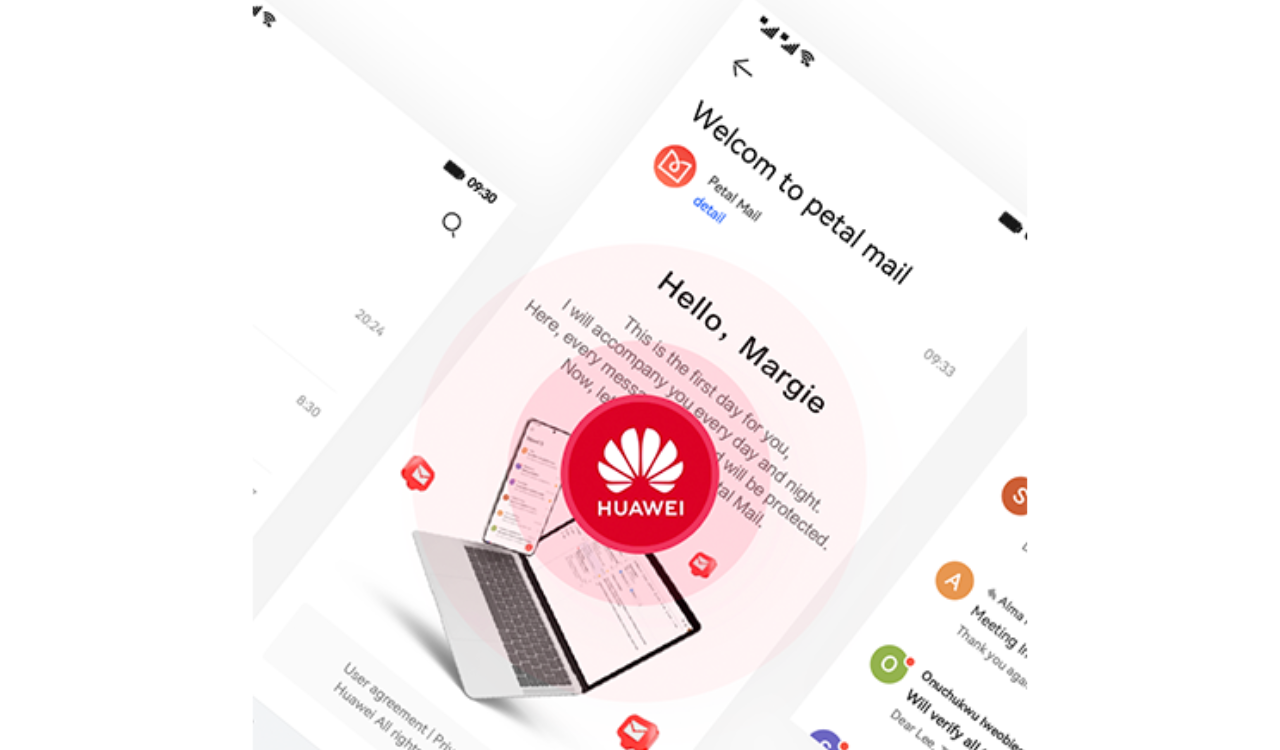Huawei News
Huawei: Check these 5 new capabilities of the Intelligent cloud network solution

At MWC Shanghai 2021, Kevin Hu, President of Huawei Data Communication Product Line, announced the “five ones” new capabilities of the Intelligent cloud network solution — one hop to cloud, one-network wide connection, one-click fast scheduling, one fiber for multiple purposes, and one-stop integrated security. This solution helps carriers build cloud-oriented service networks and core capabilities for DICT transformation.
Carriers adopt the DICT strategy to meet the digital transformation demands of their industry customers. New opportunities are accompanied by new changes and challenges.
Change 1: Cloud access demands are increasing rapidly. 93% of enterprises will use public clouds, and 74% of enterprises will use hybrid clouds. Enterprises have demands for multi-cloud connection through single-point access.
Change 2: Enterprise private lines are shifting to cloud private networks. After enterprise service systems are cloudified, enterprise needs transform from private lines to globally reachable cloud private networks.
Change 3: Best-effort forwarding is shifting to experience assurance. The cloudification of enterprise production systems means that networks need to change from best-effort forwarding to deterministic experience assurance.
Change 4: Single-point security is shifting to all-round protection. To meet service cloudification requirements, security needs to change from single-point protection provided by firewalls to E2E (from devices, networks, and clouds to applications) security collaboration and all-round protection capabilities.
Huawei’s intelligent cloud network solution, through its five-ones new capabilities (one hop to cloud, one-network wide connection, one-click fast scheduling, one fiber for multiple purposes, and one-stop integrated security), maximizes the value of carriers’ network resources and fully leverages the complementary advantages of clouds and networks. As such, it is the key for carriers to provide DICT services integrating clouds and networks.
One hop to cloud: Cloud access paths enable cloud access within minutes.
The cloud backbone provides flexible connections between multiple clouds and networks while SRv6-based cloud access paths streamline cross-domain connections. With technology breaking process barriers, experience on clouds and networks becomes consistent, and service access to clouds through one network can be implemented within minutes.
One-network wide connection: Network-as-a-service delivers cloud-like network usage.
The service-oriented network architecture provides tenant-level interfaces to shield network implementation details. This reduces the system integration time by 90%, enabling enterprises to use networks as conveniently as using clouds. Furthermore, with iMaster NCE’s intelligent distributed path computation, the scale of network connections reaches 100 times greater than the industry average, meeting the demands for ultra-large-scale networking and global interconnection of numerous tenants.
One-click fast scheduling: The intelligent cloud graph algorithm improves IDC resource utilization by 30%.
The intelligent cloud graph algorithm, combining network and cloud factors, provides optimal cloud access paths for enterprises and implements integrated scheduling of cloud and network resources. This improves the cloud and network resource utilization by 30%.
One fiber for multiple purposes: Hierarchical slicing provides a deterministic service experience for numerous industries.
On the enterprise side, the intelligent cloud terminal — a box-shaped device — provides access to multiple services requiring different SLAs, such as CCTV, office Internet access, and remote conferencing. On the network side, one fiber to different slice-based service private networks provides fine-granularity experience assurance.
One-stop integrated security: The QIANKUN security cloud service builds all-round security protection.
(Via)
Huawei News
Huawei Wins Best Network Technology Award at 2025 FutureNet Event

The FutureNet World 2025 event just completed in London, bringing together over 700 industry leaders to talk about the future of network technology. The yearly gathering attracts top executives from global telecom companies, standards organizations, and technology suppliers. For the first time ever, the event created a special “Intelligent Network Best Practice Award” – and Huawei won the prize.
The company stands for its innovative work on smart, self-managing networks. Huawei’s winning technology helps telecom companies run their networks more intelligently with less human intervention. Their solution includes smart digital assistants designed for network maintenance, improving customer experience, and business operations.
These digital helpers fall into two main categories – the Mate series and the Spirit series. The technology has already been rolled out in many countries, showing impressive results across different types of networks including IP, optical, wireless, and core systems. Speaking at the event, Wang Shaosen, who leads Huawei’s smart network solutions, shared the company’s vision: “We’re committed to developing technology that makes networks smarter.
This will help telecom companies succeed with advanced 5G services and prepare for the future of 6G connectivity.

Huawei News
Huawei Petal Mail App will no longer be available for download

According to the official information, the Huawei released the delisting announcement of its Petal Mail App. The full text of the announcement is as follows: [translated]
Thank you for your continued attention and support to the Huawei Petal Mail App. In order to better adapt to the changing needs of product experience, service content and local markets, we have made strategic adjustments to the Huawei Petal Mail App.
The Petal Mail App will officially switch to the Email App on December 31, 2024, and the Petal Mail App will no longer be available for download from the App Store. The Petal Mail App you have installed can be used normally. We apologize for the inconvenience. You can continue to view, send or receive emails in the pre-installed Email App on your Huawei phone or use a computer browser to open the Petal Mail official website ( https://www.petalmail.com ), and your emails and personal data will not be lost.

Huawei News
Huawei Mate 70 lineup repair spare parts prices announced

Huawei released the Mate 70 series of mobile phones, with a starting price of 5,499 yuan. At present, the prices of spare parts for the new Mate 70 series have been announced on Huawei’s official website.
Huawei Mate 70 lineup repair spare parts prices announced
Battery and motherboard
Mate 70
Battery — 199
12GB+256GB — 2499
12GB+512GB — 2899
12GB+1TB — 3599
Mate 70 Pro
Battery — 199
12GB+256GB — 2899
12GB+512GB — 3299
12GB+1TB — 3999
Mate 70 Pro+
Battery — 299
16GB+512GB — 4399
16GB+1TB — 4899
Mate 70 RS
Battery — 299
16GB+512GB — 6499
16GB+1TB — 6999
Camera














